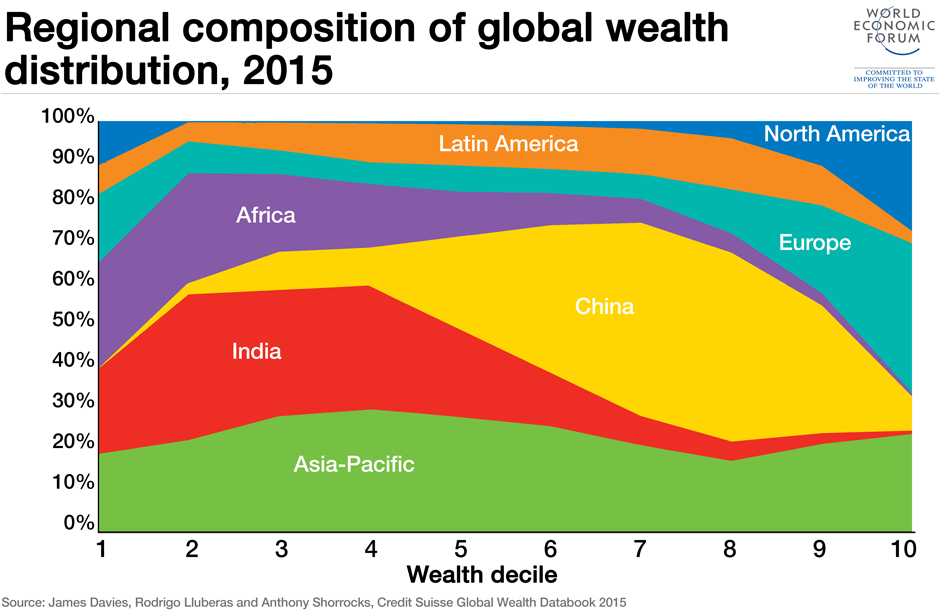Who are the 1%? The answer might surprise you
Stay up to date:
Economic Progress
It’s official: half of the world’s wealth is now owned by the top 1%. Escalating levels of global inequality over recent years have led to the top percentile of wealth holders now possessing 50.4% of all household wealth, according to a new report by Credit Suisse.
In January this year, Oxfam warned against spiralling inequality, forecasting that 1% of the world’s population would be richer than the remaining 99% by the year 2016. The threshold has now been crossed.
The Global Wealth Report 2015 highlights another unexpected fact: that the world’s wealthiest 1% is not entirely made up of billionaires, but contains a significant number of people whose assets amount to $759,900 or over. Indeed, there are only 123,000 ultra high net worth individuals (defined as those whose assets exceed $50 million) worldwide. As a group, however, they lay claim to 45% of the world’s wealth.
The report says: “We estimate that 3.4 billion individuals – or 71% of adults worldwide – have wealth below $10,000, while the group of millionaires, who comprise less than 1% of the global population, account for 45% of total wealth.”
As for the rest of us?
A full 50% of the global population have less than $3,000 to their name. Accounting for property and stock market investments (and discounting debt), Credit Suisse reports that a mere $3,200 is enough to place a person firmly in the world’s top 50%. Those with $68,800 or more will find themselves in the top 10% bracket.
The sudden rise in affluence of the top 1% may have exceeded expectations, but this could be down to the recent rise of the US dollar and how it has thrown US wealth inequality into sharp relief, skewing the overall picture.
Here’s how wealth is distributed around the world:
Have you read?
Why the wealthy don’t understand inequality
Stephen Hawking: ‘Technology seems to drive inequality’
Was Tomas Picketty right to call for a wealth tax?
Author: Anna Bruce-Lockhart is an editor at the World Economic Forum
Image: Protestors paint a 99% slogan on the street during May Day demonstrations in San Francisco, California May 1, 2012. REUTERS/Robert Galbraith
Don't miss any update on this topic
Create a free account and access your personalized content collection with our latest publications and analyses.
License and Republishing
World Economic Forum articles may be republished in accordance with the Creative Commons Attribution-NonCommercial-NoDerivatives 4.0 International Public License, and in accordance with our Terms of Use.
The views expressed in this article are those of the author alone and not the World Economic Forum.
Forum Stories newsletter
Bringing you weekly curated insights and analysis on the global issues that matter.
More on Economic GrowthSee all
Aengus Collins
May 14, 2025
Rya G. Kuewor
May 13, 2025
Tea Trumbic and Dhivya O’Connor
May 13, 2025
Navi Radjou
May 8, 2025
Dave Neiswander
April 28, 2025
Alem Tedeneke
April 25, 2025





